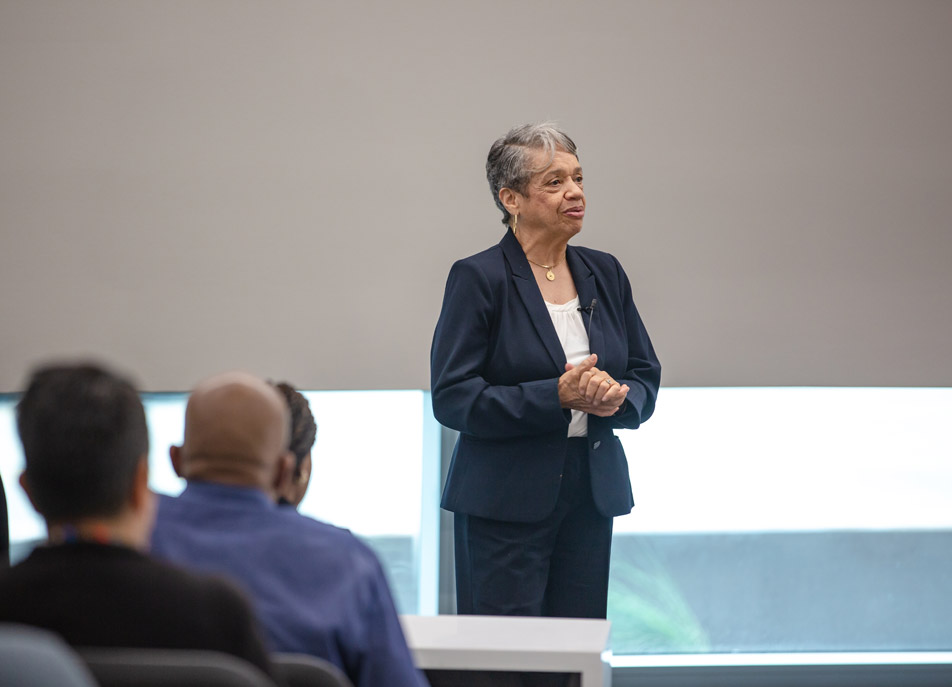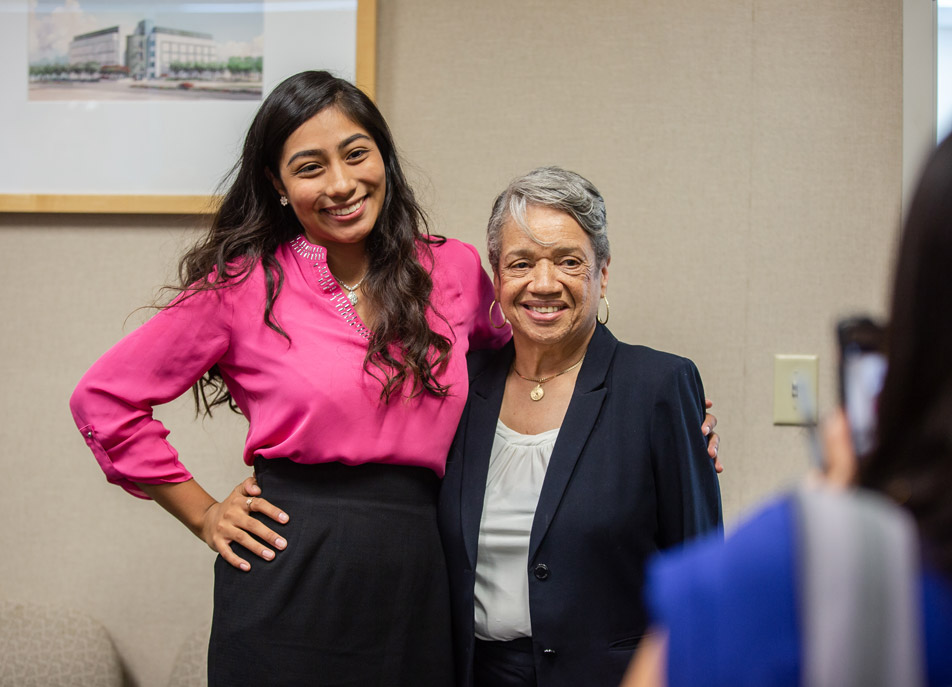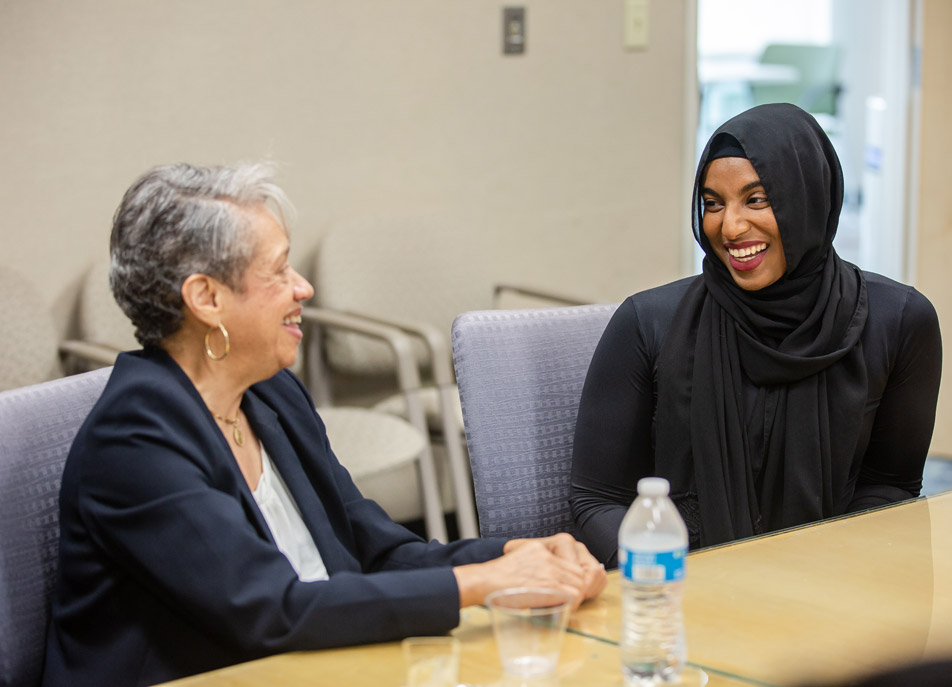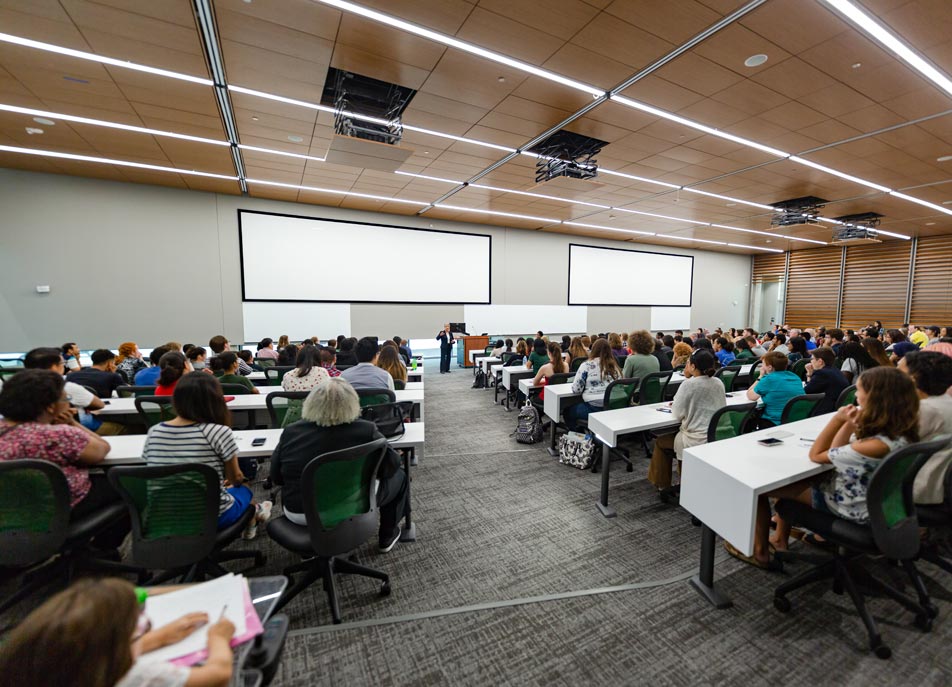When Dr. Christine Darden told her dad she wanted to study math in college, he encouraged her to get a teaching certificate with her degree.
“He said there are not a lot of jobs for African-American women mathematicians,” Darden told a packed audience at The University of Texas at Dallas last month. “I know my dad was trying to look after me. I know he wanted to make sure I could get a job.”
Darden started her career as a teacher but continued to pursue her dream of working as a mathematician. She shared the story of her journey from teacher to becoming one of NASA’s “human computers” featured in the book Hidden Figures: The American Dream and the Untold Story of the Black Women Mathematicians Who Helped Win the Space Race by Margot Lee Shetterly.
The Women’s Network of the Frontiers of Flight Museum presented the lecture in partnership with the UT Dallas chapter of the National Society of Black Engineers (NSBE), the Galerstein Gender Center and the Erik Jonsson School of Engineering and Computer Science. Reem Dawelbeit, a mechanical engineering senior who became the NSBE’s first female president at UT Dallas this fall, introduced Darden.
While working as a teacher, Darden earned a master’s degree in applied mathematics from what is now Virginia State University. After that, she earned a PhD in mechanical engineering from George Washington University.
“As a woman, there are barriers, and Darden gave me an example of what it is to be passionate, and that passion will guide you to open opportunities not only for yourself, but for other women, too.”
Karla Roman, computer science senior
Her passion for math and persistence paid off when, in 1967, NASA hired Darden as one of its human computers. She worked in a mostly female department handling calculations for engineers, who were men. When she saw that men with the same skills were hired directly as engineers, Darden asked for a promotion. Her boss said, “No.” She took the issue to a supervisor a few levels higher. Darden said she asked why men with the same educational backgrounds were hired as engineers while women were assigned to the computer pool to support the engineers.
“He looked at me, and he said, ‘Nobody has ever asked that question before.’ I said, ‘I’m asking it now. This is the kind of work that I prepared to do,’” Darden said. “Within two weeks, I was promoted, and I was transferred to engineering.”
Darden became one of a few female aerospace engineers at NASA Langley Research Center at that time and continued to advance during her 40-year career at the agency.
Before the lecture, Darden visited a class and attended an informal meeting with students. At that event, several students took the opportunity to talk to Darden and pose for photos with her.
Computer science senior Karla Roman said she was honored to meet Darden.
“As a woman, there are barriers, and Darden gave me an example of what it is to be passionate, and that passion will guide you to open opportunities not only for yourself, but for other women, too,” Roman said.
Emily Lomas, an information technology and systems sophomore in the Naveen Jindal School of Management, said she was inspired by Darden’s story and visit.
“Watching ‘Hidden Figures’ and then meeting someone who was part of that history is mind-blowing,” Lomas said. “It opens up your eyes to the possibility of a woman breaking through those barriers and allowing other women in the future to do the same.”



